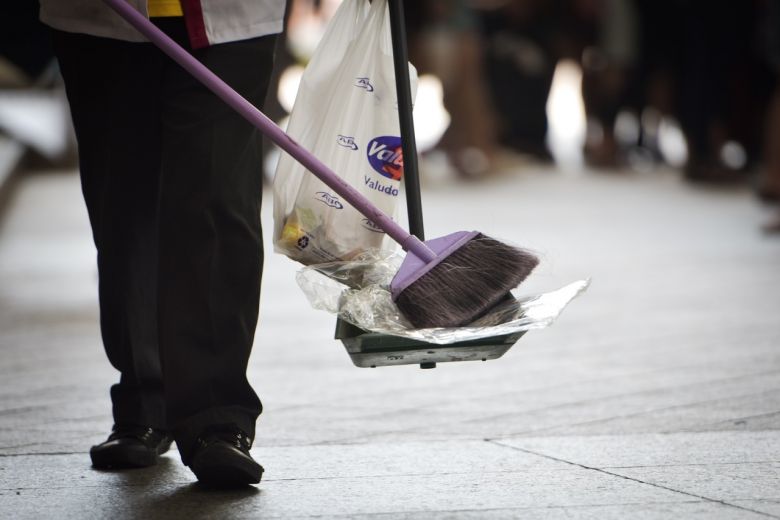Coronavirus pandemic
Better opportunities, wages for lower-paid workers
Sign up now: Get ST's newsletters delivered to your inbox

Lower-income Singaporeans in short-term contract work will also be provided with opportunities.
PHOTO: ST FILE
Yuen Sin
Follow topic:
In time, every sector in Singapore will have a progressive wage structure with a clear ladder of skills that will result in better jobs and improved wages for lower-paid workers, said Senior Minister Tharman Shanmugaratnam yesterday.
Lower-income Singaporeans in short-term contract work will also be provided with opportunities to get more stable jobs, better protection and the chance to progress in their careers, he added.
While such changes may lead to a small rise in the cost of services for Singaporeans, they can bring about meaningful and continuing improvements in pay and conditions for lower-income workers, he said.
"It is a small price for us to pay for better jobs and income security for those who need it most, and a fair society."
In the fifth of six national broadcasts on Singapore's post-coronavirus future, Mr Tharman, who is also Coordinating Minister for Social Policies, pledged to provide greater support for lower-and middle-income Singaporeans, strengthen policy support for them, and build a fair and just society.
The social support schemes introduced recently to help Singaporeans hit by the coronavirus crisis are part of a "broader re-orientation" in Singapore's social policies that began well before the pandemic and will outlast it, he said.
These efforts have also been complemented by a spirit of solidarity that Singaporeans have demonstrated in the ongoing Covid-19 crisis, and which has to be sustained and strengthened even after the pandemic, he added.
"We must remain a society where self-effort is rewarded, and each one of us takes pride in achieving something in life.
"But we also need, more than we did in the earlier years, a strong spirit of selflessness and solidarity, looking out for the vulnerable, and supporting each other. Not because we are obliged to do so, but because it makes us a better society together."
Mr Tharman noted that over the years, the Government has increased subsidies for lower-and middle-income families in education, housing and healthcare, which includes the Community Health Assist Scheme that provides healthcare subsidies.
The Silver Support scheme, which gives quarterly payouts to eligible Singaporeans aged 65 and older, is also getting a boost to help poorer retirees.
Support for lower-income Singaporeans is also being strengthened, he said.
Through Workfare, which gives payouts to lower-paid workers, and the Special Employment Credit, which provide wage offsets, the Government pays older, lower-income workers as much as 40 per cent on top of the wages they get from their employers.
Progress in raising the income of Singapore's lowest-paid workers has also been made, and the country will continue to build on it, the minister said.
Through the adoption of the Progressive Wage Model (PWM) - a wage ladder that specifies higher pay for workers as they upgrade their skills - cleaners, security officers and landscape workers have seen their real wages go up by 30 per cent in the last five years.
He said Manpower Minister Josephine Teo is also working actively with tripartite partners to bring in more industry associations and work out progressive wage schemes for various industries, as Singapore strives to extend a progressive wage structure to every sector.
"No one can tell what world will emerge when Covid-19 is over, or whether it has entered a long period of economic stagnation as many fear," said Mr Tharman.
"But we will do all we can to make ours a more cohesive society, and do it in ways that can be sustained into the next generation. And we must all do our utmost to avoid the rifts and fractures that we see developing in many other societies."

